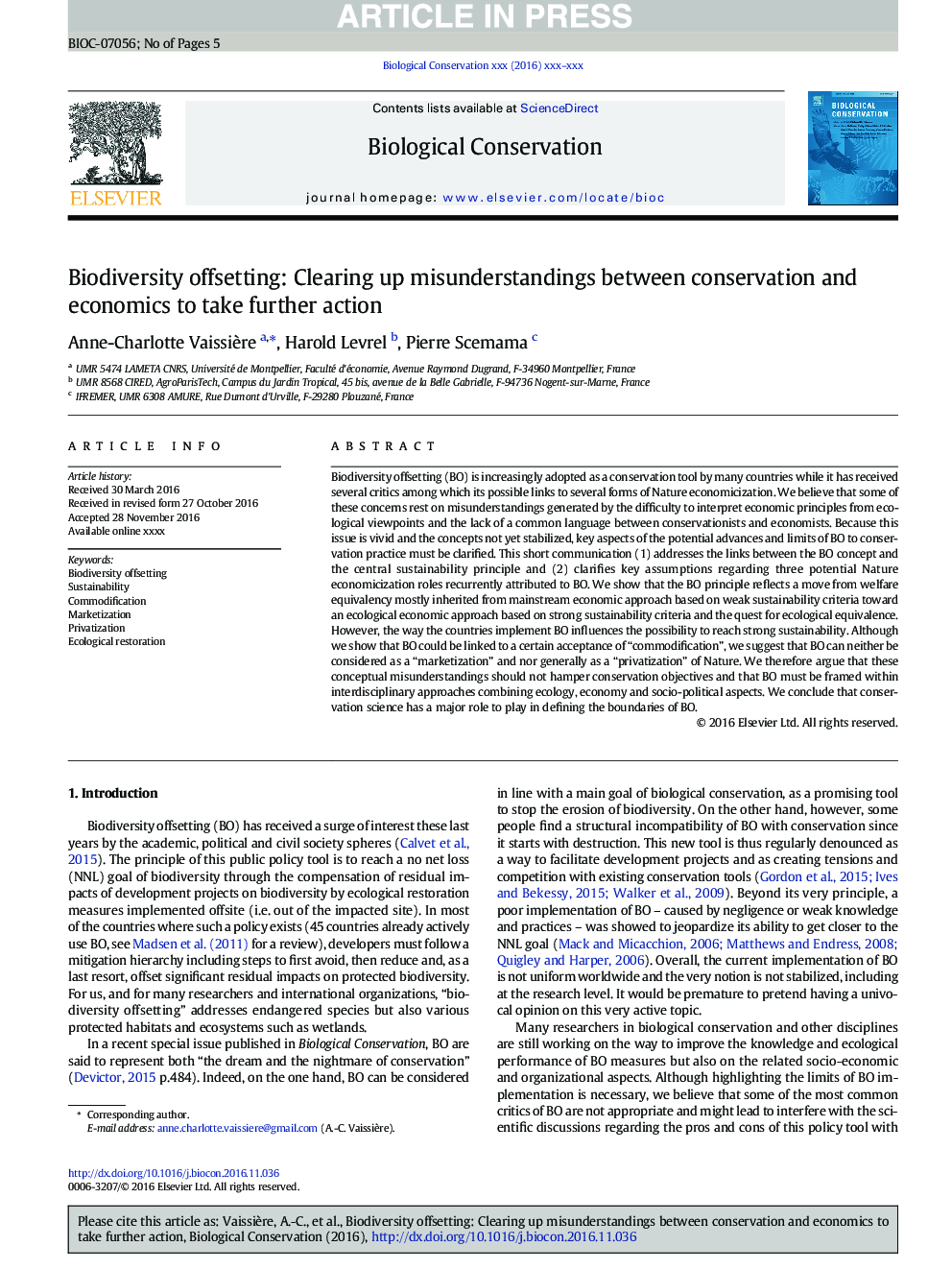| Article ID | Journal | Published Year | Pages | File Type |
|---|---|---|---|---|
| 5743292 | Biological Conservation | 2017 | 5 Pages |
Abstract
Biodiversity offsetting (BO) is increasingly adopted as a conservation tool by many countries while it has received several critics among which its possible links to several forms of Nature economicization. We believe that some of these concerns rest on misunderstandings generated by the difficulty to interpret economic principles from ecological viewpoints and the lack of a common language between conservationists and economists. Because this issue is vivid and the concepts not yet stabilized, key aspects of the potential advances and limits of BO to conservation practice must be clarified. This short communication (1) addresses the links between the BO concept and the central sustainability principle and (2) clarifies key assumptions regarding three potential Nature economicization roles recurrently attributed to BO. We show that the BO principle reflects a move from welfare equivalency mostly inherited from mainstream economic approach based on weak sustainability criteria toward an ecological economic approach based on strong sustainability criteria and the quest for ecological equivalence. However, the way the countries implement BO influences the possibility to reach strong sustainability. Although we show that BO could be linked to a certain acceptance of “commodification”, we suggest that BO can neither be considered as a “marketization” and nor generally as a “privatization” of Nature. We therefore argue that these conceptual misunderstandings should not hamper conservation objectives and that BO must be framed within interdisciplinary approaches combining ecology, economy and socio-political aspects. We conclude that conservation science has a major role to play in defining the boundaries of BO.
Keywords
Related Topics
Life Sciences
Agricultural and Biological Sciences
Ecology, Evolution, Behavior and Systematics
Authors
Anne-Charlotte Vaissière, Harold Levrel, Pierre Scemama,
